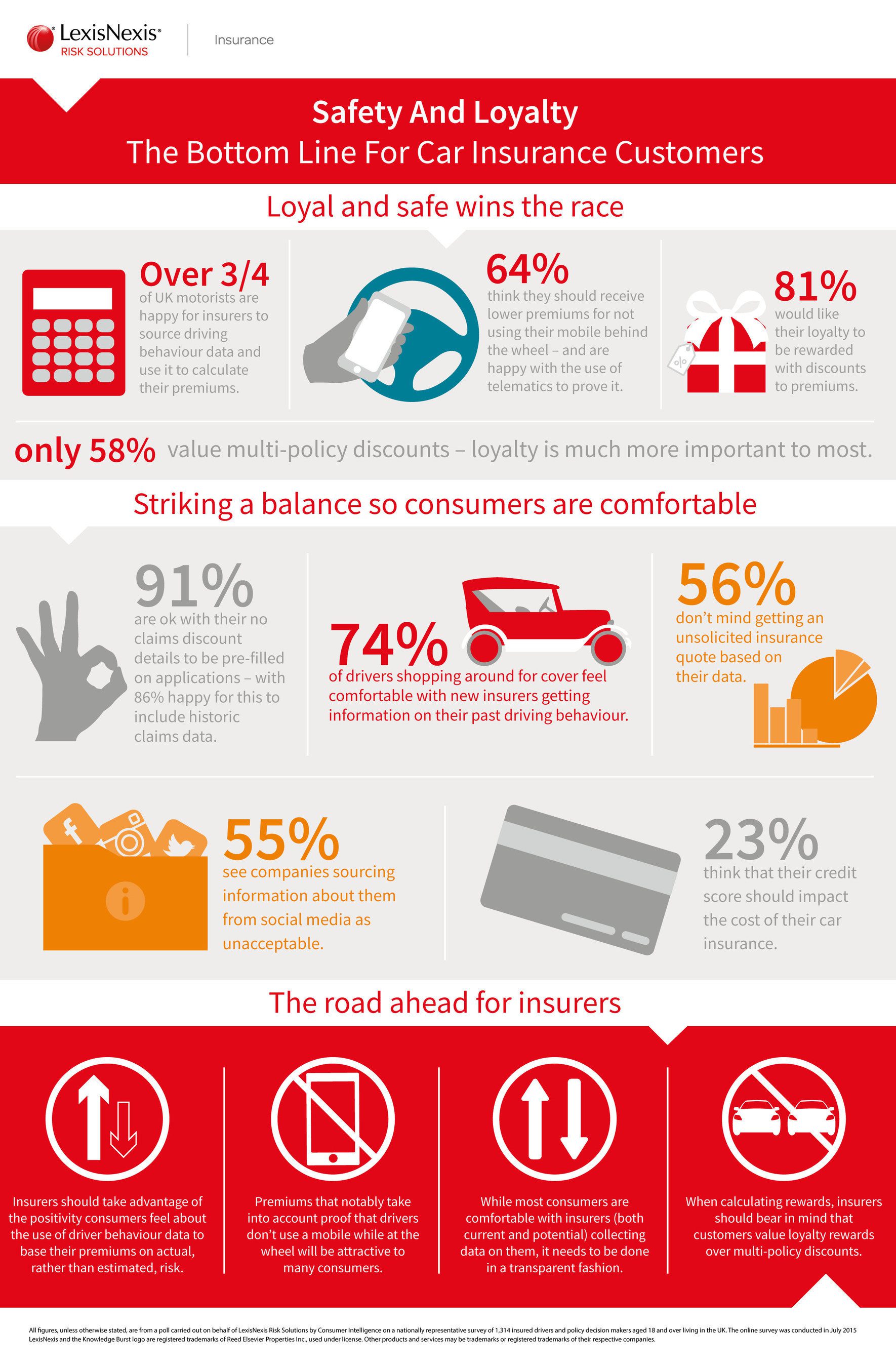– 78% of motorists think that the price they pay for insurance should be linked to their driving behaviour
– Insurers should offer lower premiums to motorists who don’t use their mobiles at the wheel say 60% of respondents with women drivers likely to benefit the most
– 81% of motorists want their loyalty to insurers rewarded in cheaper insurance
Demonstrating a growing intolerance of mobile phone use at the wheel, a survey of 1314* motor insurance policyholders found that consumers want to be rewarded with lower premiums for not using their smartphone whilst driving. 60% think avoiding any type of mobile phone use – including both text and calls – should be a top factor used by insurers in offering lower premiums. The survey, conducted for LexisNexis® Risk Solutions and its UK telematics business Wunelli, by Consumer Intelligence was undertaken to determine driver opinions on how motor insurance premiums should be calculated.
The findings have been released following the UK Government’s warnings to the insurance sector that traditional ways of rating motor insurance will become obsolete with the emergence of the connected car and driverless car**.
Selim Cavanagh, VP Telematics for Wunelli, a LexisNexis Risk Solutions company, said: “The very basis of telematics insurance is to provide fairer premiums to motorists so that they are not paying for the poor behaviour of others and to incentivise safer driving behaviour. From our research, the vast majority of motorists understand this but there is evidently a great opportunity for insurers and brokers to consider how they can tap into this growing level of awareness and the corresponding expectations motorists have over how they should be rewarded.”
Women would have the most to gain as the percentage of male drivers who regularly use smartphones is nearly double that for female drivers. Also younger drivers (male and female) are distracted by their smartphone more often. Drivers who use a phone hand held at the wheel almost double their risk of an accident with associated hard braking increasing by three quarters (75%), while those on hands free increase their risk by a fifth***.
Telematics policies enable insurers to detect whether a motorist is using a smartphone at the wheel and from the study, the vast majority (78%) of motorists are comfortable with the fact insurers will use their driving behavior data sourced from a fixed device or smartphone app to determine the price they pay for their insurance.
Insurers who reward customers more for multiple policies rather than for loyalty could be missing an opportunity to retain customers as 81% of motorists want loyalty to be a factor in pricing compared to 58% who think multi policy discounts are important.
Selim Cavanagh added: “To satisfy this demand for fairer pricing based on actual rather than predicted driving behaviour, the insurance sector needs to break down the barriers to telematics adoption. It is one of the reasons why we have launched a 12v device that plugs into the cigarette lighter in the car and is paired with the policyholder’s smartphone. The device communicates over Bluetooth technology with the designated smartphone app to record driving behaviour data. As well as insurance coverage, customers benefit from the charging capabilities of the device and crash reporting – compelling consumer benefits which will help take telematics from niche to mainstream adoption.”


| [donate]
| Help keep news FREE for our readersSupporting your local community newspaper/online news outlet is crucial now more than ever. If you believe in independent journalism,then consider making a valuable contribution by making a one-time or monthly donation. We operate in rural areas where providing unbiased news can be challenging. |






















